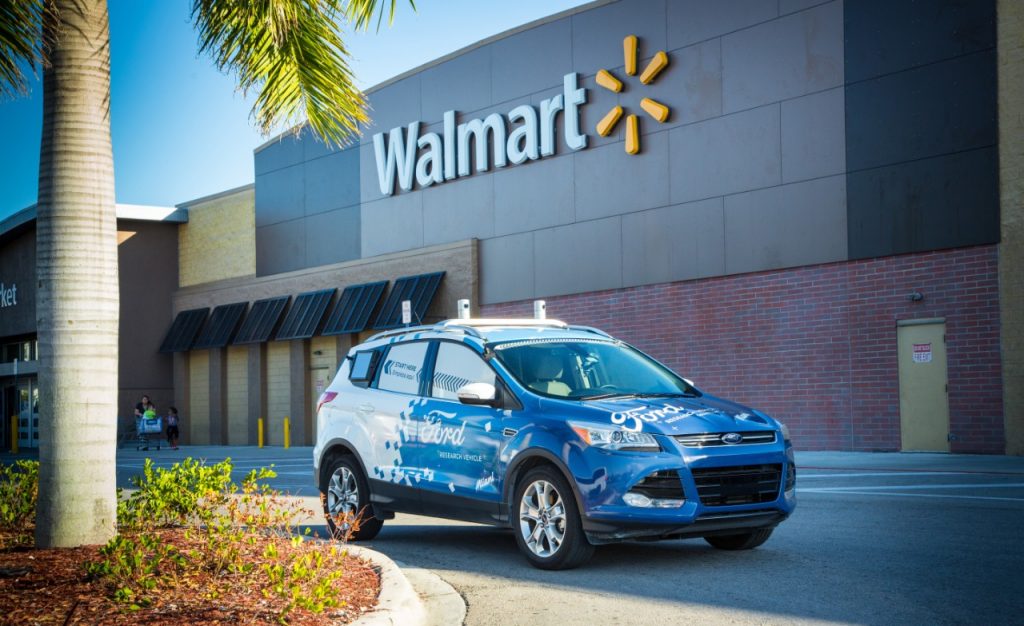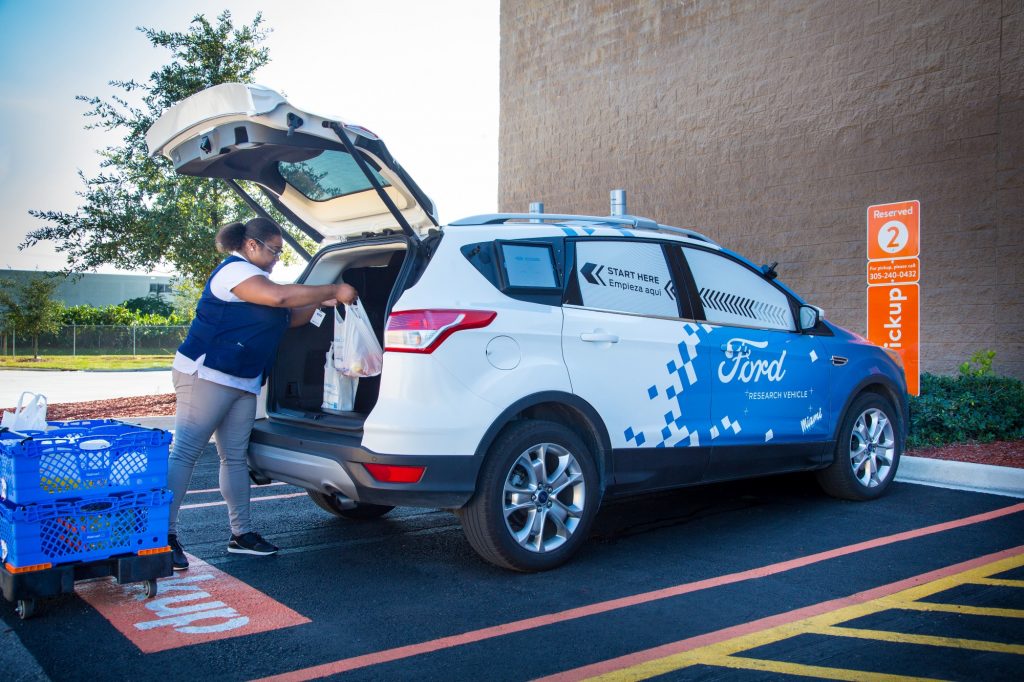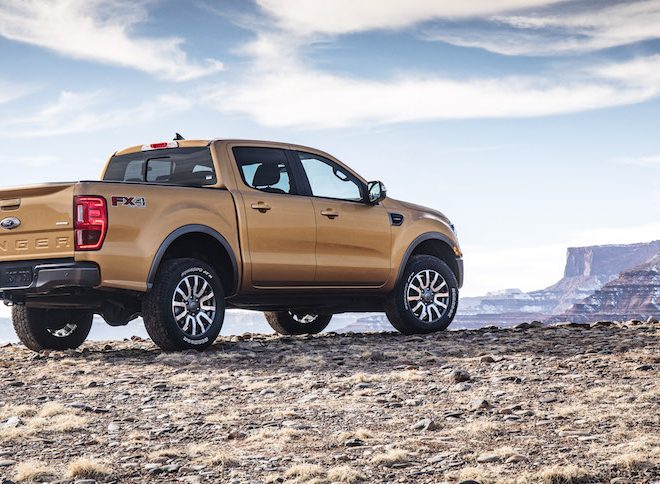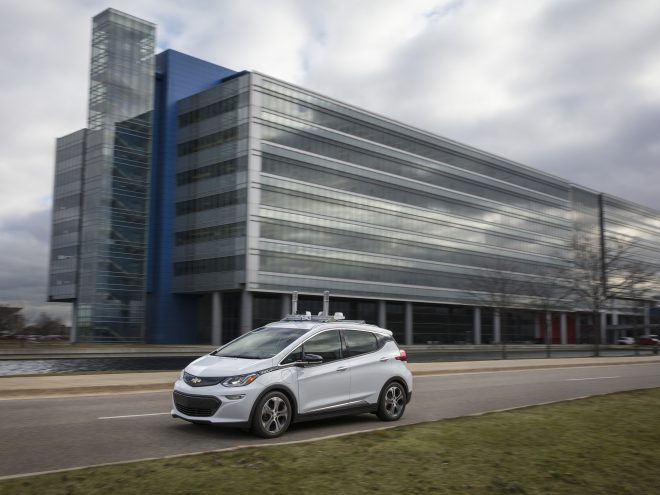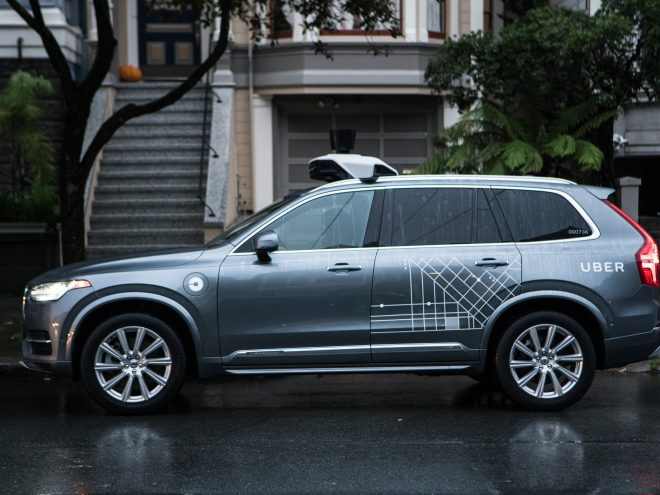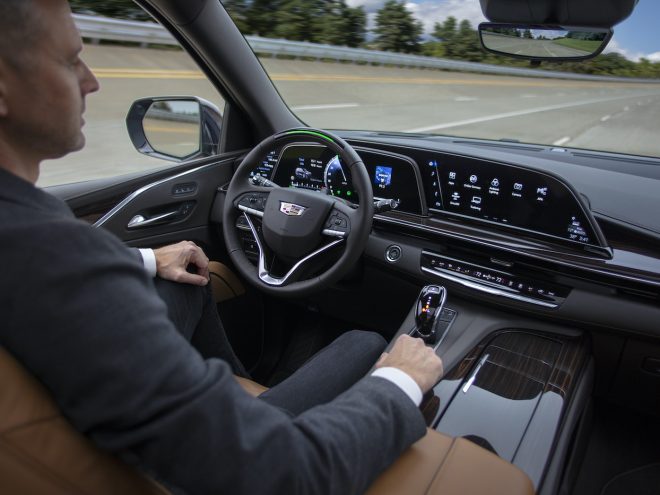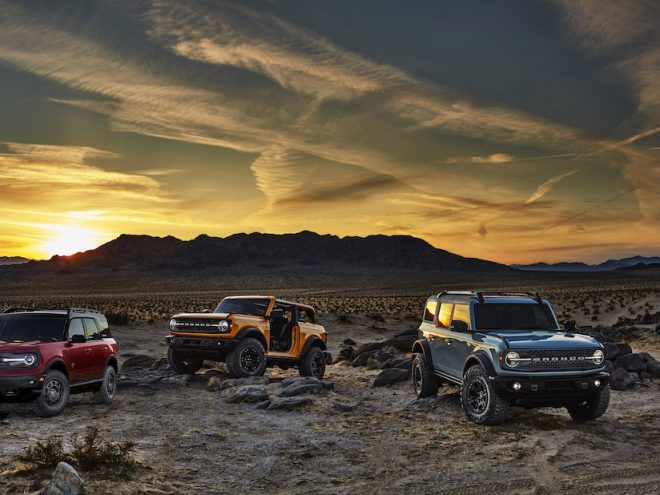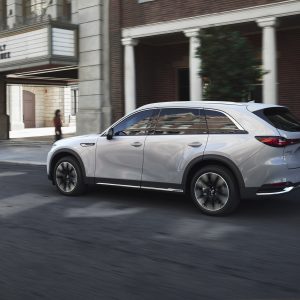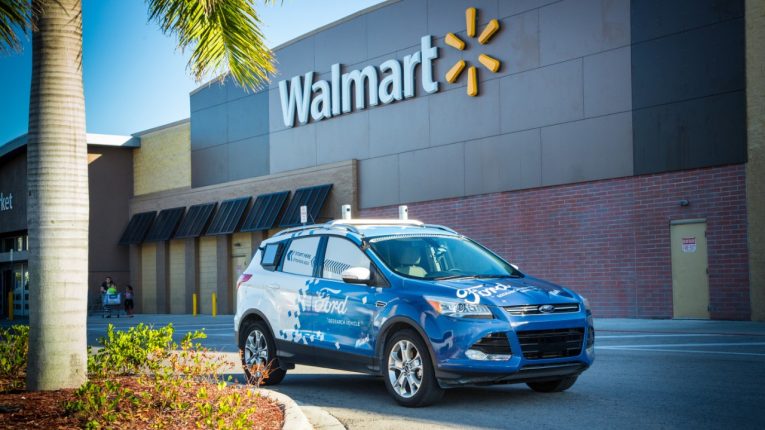
Ford, Walmart Offer Self-Driving Delivery in Miami
Ford says that after surviving a tough day at work or managing the kids’ schedules, the thought of leaving the house again to run to the store can feel downright exhausting — especially if stores around you aren’t conveniently located.
The automaker believes the advent of self-driving vehicles opens up the potential to ease some of life’s pain points and markedly expand affordable access to transportation and goods delivery. They’re already collaborating with both national and local companies to understand how they can improve goods delivery through the use of self-driving vehicles, working to transport tacos, floral arrangements, dry cleaning and a number of other items.
Now, they believe it’s time to explore how grocery delivery can help expand access to fresh food and other retail items for people all over the country, including in Miami-Dade County, where they’re currently putting together a comprehensive self-driving business operations to the test.
They teamed up with Walmart and through this collaboration, are exploring how self-driving vehicles can deliver many everyday goods such as groceries, diapers, pet food and personal care items. Enabled by Postmates delivery as a service, they were able to quickly set up a pilot program that explores how their self-driving vehicles can complement Walmart’s existing delivery offerings.
Walmart has seen customers respond positively to its grocery delivery option, which uses the company’s trained personal shoppers to select fresh produce and other groceries for orders that are then fulfilled through Postmates and its other delivery networks. By the end of this year, that option will be available in 800 stores across 100 metropolitan areas around the country. Next year, the number of stores offering delivery service is expected to double.
Like Ford, Walmart believes that self-driving vehicles have an important role to play in the future of delivery, and that true success comes from first learning how individuals want to use them in their daily lives. Together, they’ll be using research vehicles, designed to simulate an autonomous experience, to gather crucial data about consumer preferences and learn the best way they can conveniently connect people with the goods they need.
Over the next couple of months, they’ll be working closely with Walmart to understand its operations, identify what goods they can feasibly transport, and pinpoint any issues that may need to be addressed to successfully deliver orders via self-driving vehicles. Naturally, orders from a supermarket will tend to be larger and more varied than orders from a restaurant or dry cleaner. So they’ll be exploring different vehicle configurations or modifications that they could make to meet people’s needs — especially to accommodate perishable goods, or scenarios where their vehicles end up making multiple deliveries on a single trip.
